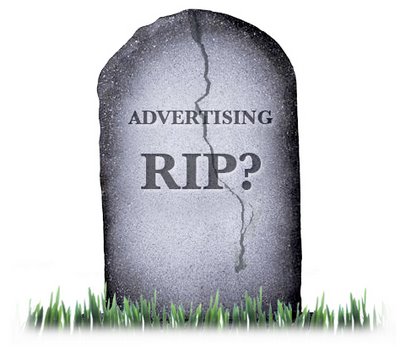 Regular readers of this blog will know we try and track uses of the term, “Connection Economy”. For us, its a key term that describes the emerging reality of the 21st century. Its a world in which WHAT you sell is becoming less and less important (since its the same stuff as that which your competitors sell, anyway), and WHO you are and HOW you sell are increasingly becoming your only means of sustaining a competitve advantage.
Regular readers of this blog will know we try and track uses of the term, “Connection Economy”. For us, its a key term that describes the emerging reality of the 21st century. Its a world in which WHAT you sell is becoming less and less important (since its the same stuff as that which your competitors sell, anyway), and WHO you are and HOW you sell are increasingly becoming your only means of sustaining a competitve advantage.
I recently stumbled onto a blog site, by Ray Podder, looking at branding and advertising, in which some of the implications of being technologically interconnected are fleshed out. You may want to amble over there and check it out: GROWblog.
A quote from the latest post:
Along with all the instant communication the connection economy affords us, it has also divorced us from sharing a common context. To compensate we join social networks but still feel disconnected. We communicate more than ever but feel less and less understood as we slice our shared meanings thinner and thinner across an wider audience. Is it any wonder advertisers feel the same way? If we don’t feel like we’re connecting to anyone in a meaningful way, how will companies who’ve only engaged us in a relationship of convenience? Yes, if you think a relationship with a brand is anything more than that, you’re kidding yourself!
A quote from another article by Ray (well worth reading here):
When you change the way you look at things, the things you look at change.
Take for instance the dilemma of today’s smarter brand marketer. The prior notions about a ‘brand’ being the connector of ideas from the mass marketer to the consuming masses didn’t include today’s interconnected scenario; and our aspirations couldn’t see past ideas like progress equalling mass production, mass consumption of seemingly unlimited resources, and mass marketing. In today’s connection economy, the Internet, Tivo, and Instant Messaging have likely nailed the coffin shut on the idea of a ‘mass-market’, where consuming masses supposedly respond like Pavlov’s dogs to positioned brand propositions from the mass media…..Today’s brands already realise the irrelevance of the one-to-many communication paradigm like broadcasting. However, smart, networked markets require more than shifting media focus, they require examining the propositions that brands currently build their value on…. A systemic brand allows us to collaborate with the right partner brands, philanthropic, and market systems. It’s no longer supplier against consumer or limited markets defining opposing competitors, but more like ongoing exchanges between what’s needed now to enhance the supply or the demand side and under what circumstance. Everything can potentially benefit each other, and everything has the potential of self-sabotage by disregarding the actual system at play.
That may sound vague, but it is actually more specific than how we’ve been looking at brand marketing to date. Even the idea that ‘marketing’ is a necessary action is in question here. If we are approaching a truly interconnected paradigm of civilisation, then isn’t realising the significance of each customer and each marketer within the bigger market system more important?
If you’re up for a slightly heftier read, then download a PDF file entitled, Global Brand Culture, by Ray and Jonas Bergvall. Good stuff if you’re in marketing, especially large global products.


